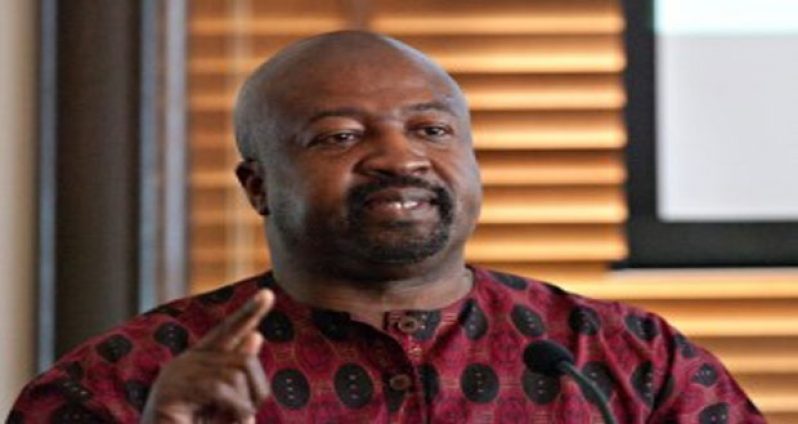By Margaret Burke
BUXTON is one of the East Coast Demerara villages that continue to have their fair share of everything, including media coverage; and indeed, there is always much to say about this intriguing village.Originally founded as Plantation Orange Nassau, it was purchased by former slaves in 1840 and renamed Buxton after Sir Thomas Buxton, the man who had fought for the abolition of slavery. One year later, its sister village Friendship was also purchased, and the two villages were eventually merged to become Buxton-Friendship, a community possessing some 1280 acres of fertile land, and being one of the largest villages in Guyana.
Buxton remains an interesting place, experiencing the good, the bad and the ugly. Buxtonians would readily agree that there is always something interesting occurring in the community; and though this is a village saturated with intellectuals at all levels and possesses people who are always willing to confront the challenges of everyday life within this community, maybe, just maybe, sometimes things are not always done right and in keeping with what would positively impact the rest of the country.
Yet there are people who would tell you they hate ‘the ugly’…. And this is clearly so based on views expressed, sentiments revealed, and actions taken.
There is no village that might be able to express ‘purity’ of action in terms of its dealings with people. However, some might be more answerable than others. Thus the economy of the village has to be grounded on the way the people perceive themselves.
AN OPTIMISTIC PEOPLE
“Buxton is an action-oriented village with a people who have a sense of optimism”. Those are the words of Buxtonian Statesman Dr. David Hinds, an academic in his own right, and one of the mentors and motivators of the people of Buxton.
Dr. Hinds notes that the people of Buxton have gone through trying times, difficult times. “In a sense,” he said, “Buxtonians became prisoners in their village…which had a tremendously negative effect…. Almost an entire generation has been scarred by that experience.” He was referring to the spate of unfortunate activities that occurred a few years ago.
Dr. Hinds said there is now need for “repair work” to be done in the village. “We lost the spirit of collectivism – that ‘togetherness’ that would have a bigger impact (on everyone in the village), (for) that is what made our village a collective space in the past.” Without this, Dr. Hinds feels, not much success would be achieved.
He indicated that Buxton was birthed out of collective ideas which filtered down into action, thus seeing much being achieved in all spheres of life; and has opined that without that element in the village, much will not be achieved.
LAND ALLOCATION
Immediately after the purchase of Buxton, there was a serious plan to streamline the village, giving responsibility to the leader of each family to place himself/herself in a sound social and economic position. Thus the allocation of plots of land within the village was given for the purpose of housing; then plots were allocated at the back of the village for the purpose of farming. The forefathers were thinking in economic terms from the very instance of the birth of the village.
Some groundwork had already begun on what was there before -– the cotton farm; however, much more needed to be done, while at the same time there was need to redesign many of the plots of land, putting in place different infrastructural works in addition to better drainage and irrigation systems.
Eager to ensure that all systems were safeguarded, the villagers spared little time in establishing a Buxton-Friendship Village Council to ensure that all systems put in place were protected and maintained. These systems included the collection of property taxes, and imposition of fines on violators for intoxication; abusive language; other immoral behaviours, such as gambling and fighting; the security and maintenance of village infrastructure; and the security of established properties.
VILLAGE ECONOMY THAT WAS
“In Buxton, almost everything that was needed in the community was provided for. Then there is the myth that African Guyanese were not engaged in business (because they) were never businesslike; but this is not true,” Dr Hinds indicated.
Between 1838 and the 1970s, there was a flourishing village economy in Buxton, which fed itself. According to Dr. Hinds, “There was everything: poultry-rearing, animal husbandry, and all sort of businesses.” However, with time, there was a movement away from the initial established village council to that of Neighbourhood Democratic Councils (NDCs). This system removed from villagers direct control over the assets of the village, while at the same time there was less direct interest in any one-village setting, and more of an extended community.
Almost simultaneous with the change to NDC were changes in the economy and the rest of the ‘world’. Of major concern was the fact that taxes were redirected to the NDC, which caused much concern among the village councillors, since they felt there was going to be less direct input into the village and its holdings. The result was the deterioration of public infrastructure within the village and the onset of bad drainage and irrigation; poor roadways; very few or no ranger to watch over the interest of farmers; all of which resulted in the general decline of the village’s agricultural production.
Next week, we will continue to look at ‘the village economy’ and where it is at this point in time.



.jpg)









